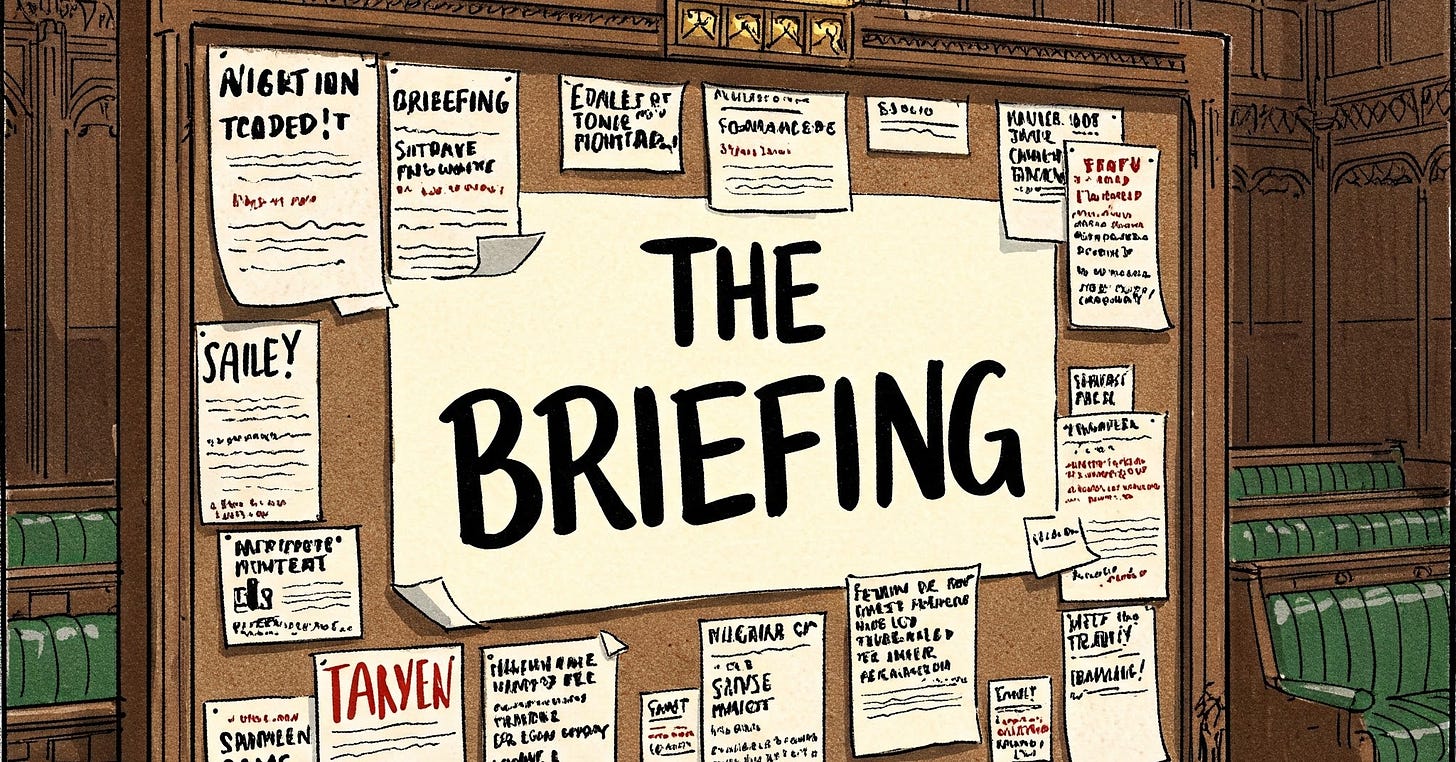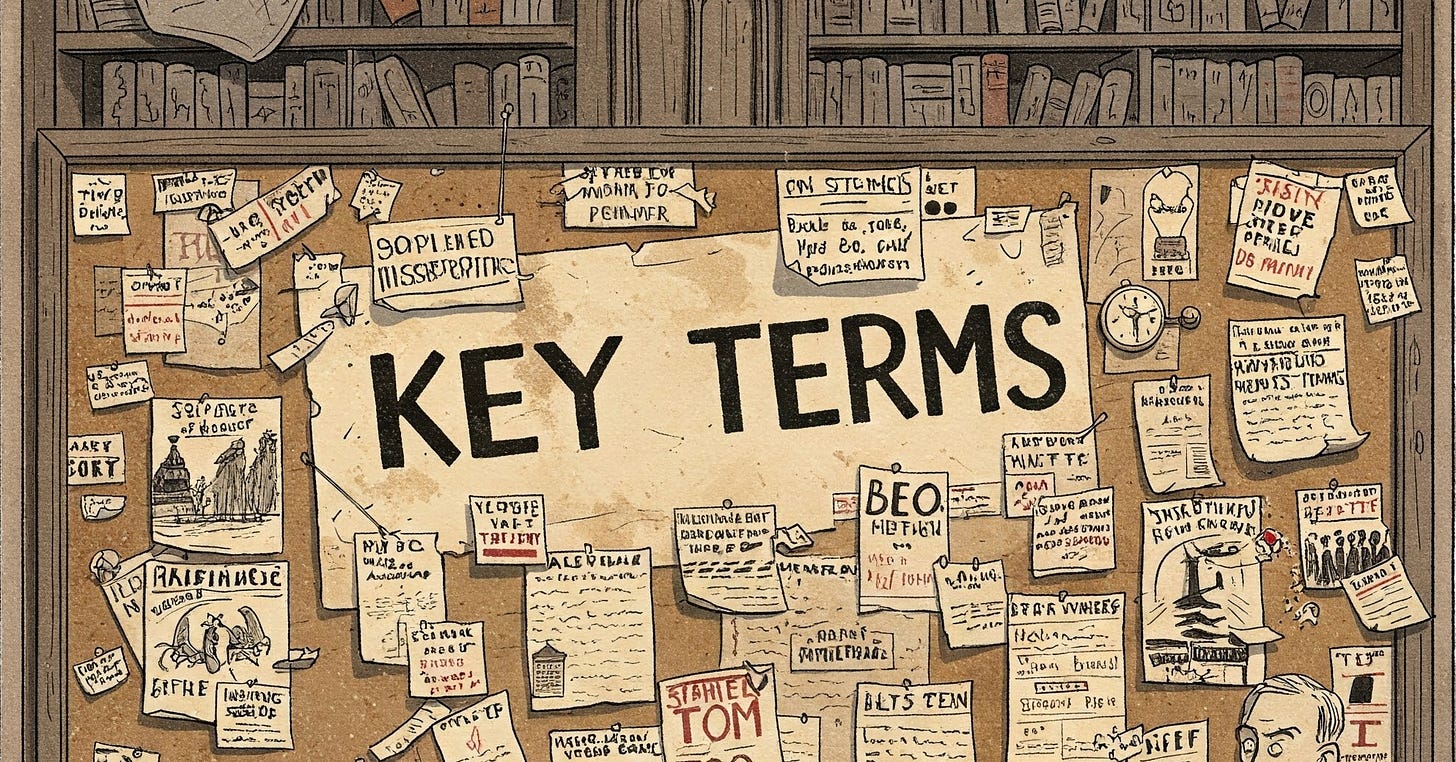Hi everyone,
Have you ever wondered if everyone gets the same level of care when faced with a serious illness? Sadly, for individuals battling rare cancers in the UK, the answer is often no. The recent Second Reading debate on the Rare Cancers Bill brought this crucial issue to the fore, highlighting the urgent need for change. These extended shownotes provide a much needed and detailed look at the key discussions and potential impact of this vital piece of legislation.
If you're interested in more extended shownotes from other Bench Report episodes, please consider subscribing now!
A Summary of the Rare Cancers Bill
The debate in Parliament underscored a fundamental concern: that people with rare cancers are frequently overlooked by the current healthcare system. This is despite the NHS's core values of equality, fairness, and justice. MPs from all sides shared powerful stories and compelling arguments, each one emphasizing the urgent need for action.
A major focus of the Bill is the critical need for increased and coordinated research into rare cancers. This includes pushing for more drug repurposing initiatives and expanding clinical trial opportunities. The Bill proposes a significant step forward by placing a duty on the Secretary of State to actively facilitate and promote this vital research. The Bill also suggests the appointment of a national specialty lead for rare cancers within the National Institute for Health and Care Research (NIHR) - there purpose would be to guide research design and planning. The current NHS drug repurposing office was even questioned for its limited success.
Access to clinical trials is another key area the Bill aims to improve. The goal is to create a tailored service within the existing "Be Part of Research" registry specifically for rare cancer patients, ensuring that all relevant trials are listed in one accessible place. Many MPs highlighted the heartbreaking reality that clinical trials often feel like a distant dream for those with rare conditions.
Delays in diagnosis were also a significant concern. The lack of awareness and familiarity with rare cancers among medical professionals can lead to lengthy diagnostic journeys. Patients' initial symptoms were dismissed, leading to critical delays in receiving appropriate care. This issue was particularly challenging for women from Black, Asian, and minority ethnic backgrounds.
The Bill also proposes a government review of orphan drug regulations. The aim is to identify how these regulations can be reformed to better incentivize pharmaceutical companies to invest in research and development, including drug repurposing, for rare cancers. The financial disincentives for developing treatments for small patient populations were acknowledged as a significant hurdle.
The Bill also emphasizes the importance of patient data and collaboration. The establishment of a single database of willing patients would ease the burden on researchers trying to find and verify suitable participants for clinical trials. There is also potential for cross-border clinical trials as a way to overcome the challenge of limited patient numbers within individual countries.
Throughout the debate, the human impact of rare cancers was powerfully conveyed through numerous personal stories. These were shared by MPs about their constituents, family members, and their own experiences. These moving testimonies underscored the urgent need for systemic change, providing a compelling emotional context for the Bill.
The Bill received strong cross-party support. Both the opposition and the government pledged their support for the Bill's progression through Parliament. The significant involvement and support of various cancer charities and patient advocacy groups were also highlighted as crucial to driving this issue forward.
A sense of frustration with the status quo and a clear call for systemic change permeated the debate. Concerns were raised about the perceived lack of progress and a desire for a more proactive and innovative approach to tackling rare cancers.
Key Takeaways: What Does This Mean?
The current healthcare system is perceived by many to disadvantage patients with rare cancers.
There is a strong push to increase funding and coordination for research into rare cancers, including drug repurposing.
The Bill aims to improve access to clinical trials specifically for rare cancer patients.
Addressing delays in diagnosis through increased awareness among medical professionals is a key objective.
The government will be asked to review regulations to encourage pharmaceutical investment in rare cancer treatments.
Creating a central database of willing patients will help accelerate research.
There is significant cross-party consensus on the need to address this issue.
Don’t forget to head to the podcast website to listen to this episode on the platform of your choice. Follow to receive new episodes as soon as they are released.
Glossary of Key Terms
Rare Cancer: Generally defined as a cancer that affects fewer than 6 in 100,000 people per year.
Drug Repurposing: Finding new uses for existing drugs that were originally developed for other conditions.
Clinical Trial: A research study in which people volunteer to test new medical treatments, interventions, or tests.
Orphan Drug Regulations: Laws designed to incentivize the development of drugs for rare diseases.
NIHR (National Institute for Health and Care Research): A UK government body that funds and supports health and social care research.
MHRA (Medicines and Healthcare products Regulatory Agency): The UK agency responsible for regulating medicines, medical devices, and blood components for transfusion.
Parliamentary Sources
Volume 763: debated on Friday 14 March 2025
Questions and Answers
Why is a specific bill needed for rare cancers?
The debate highlighted that the current healthcare system often overlooks the unique challenges faced by rare cancer patients in areas like research funding, access to trials, and timely diagnosis. This Bill aims to address these specific issues through targeted measures.
How will the Bill improve research into rare cancers?
The Bill proposes placing a duty on the government to promote research and suggests the appointment of a national specialty lead to guide research efforts. It also aims to make it easier for researchers to find suitable patients for clinical trials through a central database.
What are the potential benefits of reviewing orphan drug regulations?
The review could lead to changes that make it more financially attractive for pharmaceutical companies to invest in developing treatments for rare cancers, potentially leading to more available options.
How will the Bill help with delays in diagnosis?
By raising awareness of rare cancers across the medical profession, as requested during the debate, the hope is that healthcare professionals will be more likely to recognise the signs and symptoms, leading to earlier diagnosis and treatment.
Politics is everyone’s business. Know someone who will benefit from knowing more about this issue? Please share The Bench Report with them.
What you can do.
While the Rare Cancers Bill progresses through Parliament, here are some ways you can get involved and stay informed:
Stay Informed: Follow the progress of the Rare Cancers Bill through the UK Parliament website. Understanding the stages of the Bill will help you track its potential impact.
Support Relevant Charities: Many charities and patient advocacy groups are working tirelessly to support rare cancer patients and push for better research and care. Consider donating or volunteering your time. Organisations mentioned in the debate include Brain Tumour Research, Pancreatic Cancer UK, and Cancer52.
Share Your Story (If Comfortable): If you or someone you know has been affected by a rare cancer, sharing your story with your MP or through patient advocacy groups can help raise awareness and highlight the importance of this issue.
Engage in Discussions: Talk to friends, family, and colleagues about the challenges faced by rare cancer patients. Raising awareness within your community can contribute to broader understanding and support for change.
Polling station
Join the campaign!
Find us on socials: X / Bluesky / Facebook / Instagram
Shape our next episode! Get in touch with an issue important to you - I’ll grab another coffee and start the research!
Email: thebenchreportuk@gmail.com
Astound friends with your perfected political punditry! If you're interested in more extended shownotes from other Bench Report episodes, please consider subscribing.














Share this post